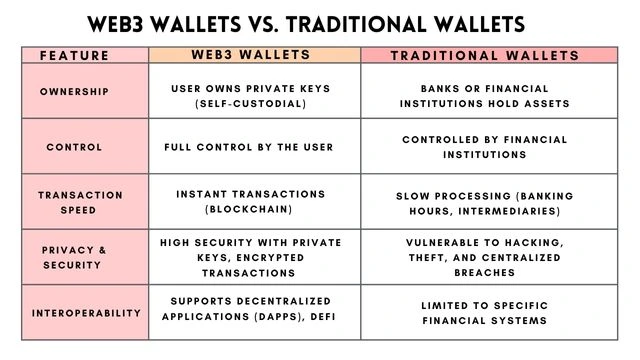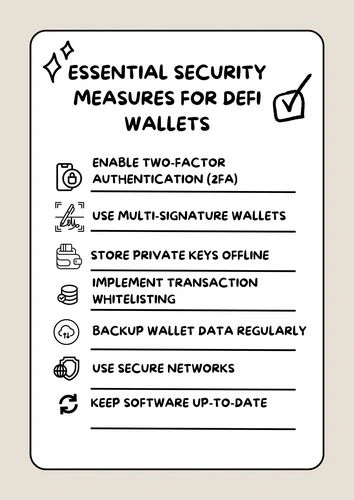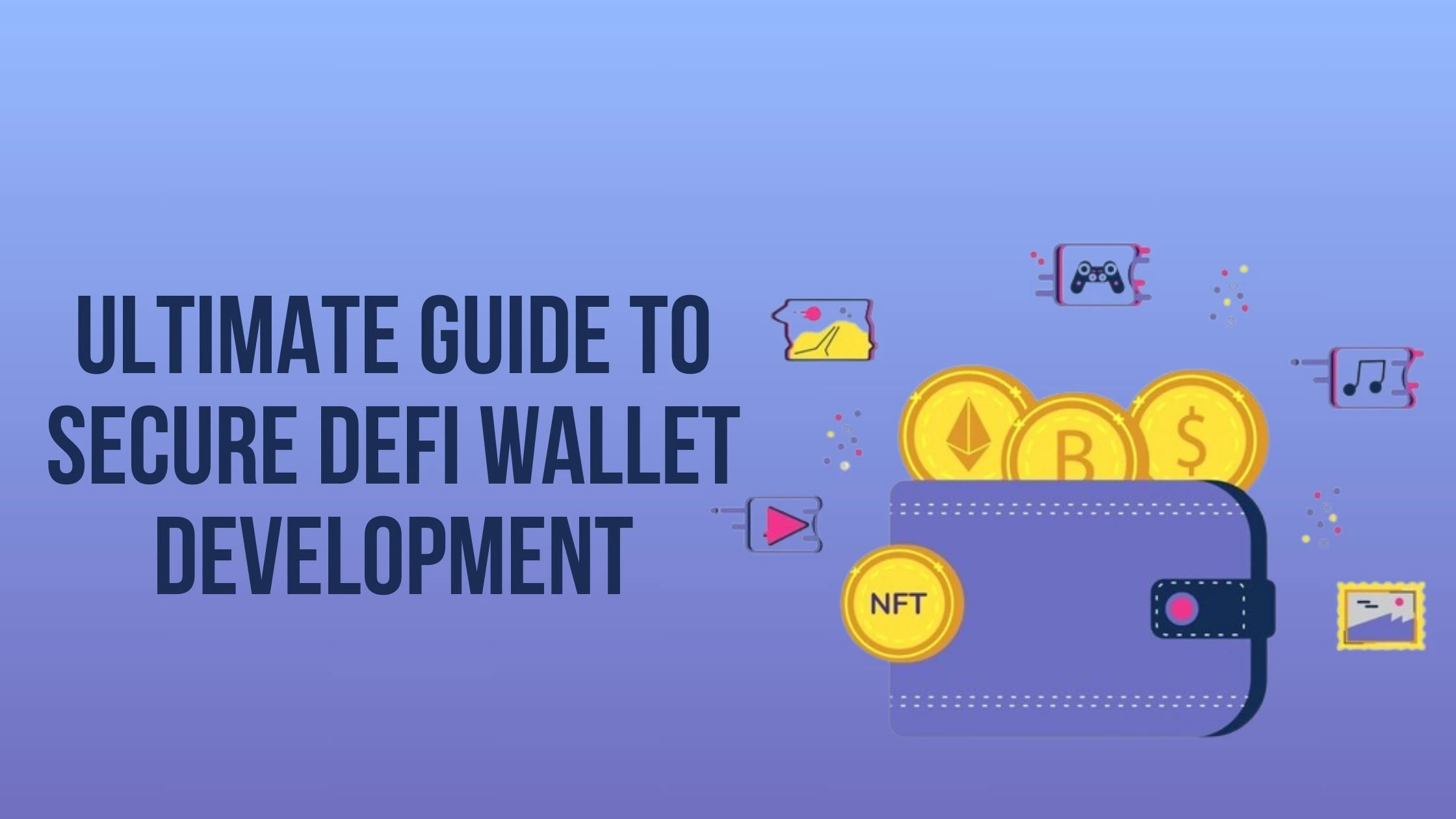In the ever-growing decentralized finance (DeFi) world, wallets empower users to access, manage, and trade digital assets. With the rise of Web3 applications, secure DeFi wallets are becoming essential tools for entrepreneurs who want to leverage this innovative financial ecosystem. However, creating a successful DeFi wallet requires more than just basic functionality. It integrates advanced features like a stake, liquidity management, and cross-chain compatibility.
This guide walks you through the key aspects of DeFi wallet development, providing insights on how to build a secure, user-friendly wallet that meets DeFi users’ unique needs.
What is a DeFi Wallet?
A DeFi wallet is a crucial tool for interacting with decentralized finance platforms. Unlike traditional wallets controlled by centralized entities like banks, a DeFi wallet empowers users with full control over their funds through blockchain technology. Users can store, manage, and transfer digital assets such as cryptocurrencies and tokens without a third-party intermediary.
As the DeFi ecosystem grows, so does the need for wallets that offer seamless, secure, and efficient access to various decentralized applications (dApps). Secure DeFi wallets allow users to engage in activities such as staking, trading on decentralized exchanges, and lending without needing centralized financial institutions. This development is at the core of Web3, which promises to revolutionize how we handle assets and conduct transactions online.
When developing a secure DeFi wallet, there are several features to focus on that ensure safety and usability:
Private Key Management
A DeFi wallet gives users control over their private keys, which are essential for accessing their funds. Ensuring robust key management features, such as hardware wallets or encrypted backups, is critical to prevent unauthorized access.
Multi-Currency Support:
Users demand wallets that can handle multiple cryptocurrencies. A DeFi wallet should support Ethereum, Bitcoin, and various ERC-20 tokens to meet the needs of the diverse DeFi market.
Cross-Chain Compatibility:
With various blockchain networks growing in popularity, having a wallet that supports cross-chain transactions allows users to move assets between different platforms, enhancing the wallet’s utility.
DeFi Staking Integration:
DeFi staking allows users to lock their assets in a network to earn rewards. A well-developed DeFi wallet should integrate staking features for users to stake tokens directly from their wallet interface.
User-Friendly Interface:
The wallet’s simple and intuitive design makes it easy for both newcomers and experienced users to navigate. Clear transaction history, asset management, and stake options create a positive user experience.
Web3 Wallet Development: A New Era of Decentralization

The development of Web3 wallets plays a pivotal role in the future of the Internet. Web3 wallet development involves creating wallets that provide users access to decentralized applications (dApps), decentralized exchanges (DEXs), and DeFi protocols. With Web3, users can interact with the blockchain without relying on centralized servers or authorities.
Web3 wallets are designed to interact with smart contracts and decentralized networks. As the internet becomes more decentralized, Web3 wallets will be the primary tools for accessing a borderless digital economy.
The Importance of Wallet for Decentralized Exchanges (DEX)
In the world of DeFi, wallets for decentralized exchanges (DEX) are indispensable. DEXs allow users to trade cryptocurrencies without a central authority, meaning users maintain control over their private keys at all times. A wallet that integrates directly with DEXs enables seamless trading experiences, making it easier for users to execute trades on platforms like Uniswap, PancakeSwap, and Sushiswap.
Building a wallet that is compatible with multiple DEXs will empower users to access liquidity and trade assets without compromising security. Ensuring fast, low-cost transactions is key to meeting the expectations of DeFi traders.
DeFi Wallet Security Best Practices
Security is the cornerstone of any secure DeFi wallet development process. With the increasing number of cyberattacks and hacks targeting digital wallets, it’s vital to implement best practices in wallet development. Some of the best practices include:

Two-Factor Authentication (2FA):
Adding an extra layer of protection for users’ funds by requiring a second form of verification when accessing the wallet.
Multisignature Transactions:
Requiring multiple keys to authorize a transaction, reducing the risk of unauthorized access.
Cold Storage:
Storing sensitive information offline to prevent hacks that target online systems.
The future of DeFi wallet development holds exciting opportunities. As DeFi grows, wallets will evolve to offer more advanced features like:
DeFi Aggregators:
Tools that allow users to access multiple DeFi protocols in a single wallet interface, simplifying their experience.
Cross-Platform Wallets:
With DeFi spanning multiple blockchains, wallet solutions will increasingly support cross-chain compatibility.
Enhanced Privacy Features:
Users are becoming more privacy-conscious. Wallets that integrate privacy-enhancing technologies such as zk-SNARKs (zero-knowledge proofs) will be in demand.
Why Should Entrepreneurs Develop DeFi Wallets?
For entrepreneurs in the blockchain space, developing a DeFi wallet presents a unique opportunity to enter a fast-growing market. A well-designed wallet can help businesses tap into the decentralized finance ecosystem, offering customers a secure way to manage their assets. With the continuous evolution of blockchain technology, secure DeFi wallet development positions your business as a key player in Web3.
Shape the Future of Finance with DeFi Wallet Solutions
At AnA Info, we’re a leading DeFi wallet development company focused on delivering secure, scalable Web3 wallet solutions. Our expert team specializes in building wallets with seamless DeFi stake integration and robust support for decentralized exchanges.
Ready to innovate? Contact us now for a free consultation and begin your journey into decentralized finance!


